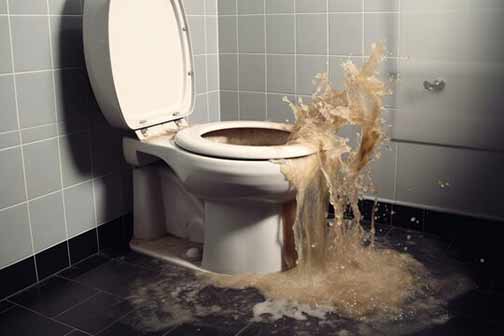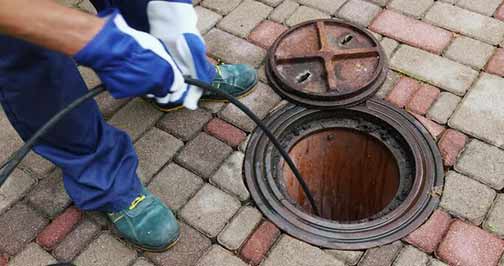
Sewer backup can be a troublesome issue for homeowners and businesses in Chicagoland. It is essential to understand the underlying causes to take preventive measures and be prepared for emergencies. Common causes of sewer backup include blockages from debris, tree roots infiltrating sewer lines, heavy rainfall overwhelming the sewer system, and aging or damaged infrastructure. By identifying the specific cause, you can implement targeted solutions to mitigate the risks.
Recognizing the Signs of Sewer Backup
Early detection of sewer backup can prevent extensive damage and costly repairs. Some common signs include foul odors emanating from drains, slow draining sinks and bathtubs, gurgling noises coming from plumbing fixtures, and water or sewage backing up into the toilet or basement. If you notice any of these signs, it is crucial to act quickly to address the issue and prevent further complications.
Immediate Actions to Take During a Sewer Backup Emergency
When faced with a sewer backup emergency, prompt action is vital to minimize damage and ensure safety. Here are the steps to follow:
- Stop using all water appliances, including sinks, toilets, and showers, to prevent additional wastewater from entering the system.
- Turn off the electrical power in affected areas to reduce the risk of electrocution.
- Keep children and pets away from contaminated areas to protect their health.
- Document the damage with photos and videos for insurance purposes.
- Contact a professional plumber or sewer service company to assess the situation and perform necessary repairs.
Protecting Your Health and Safety
Exposure to sewage can pose significant health risks due to harmful bacteria, viruses, and other pathogens. To protect yourself and your family:
- Wear protective clothing, including gloves, boots, and masks, when cleaning up contaminated areas.
- Avoid direct contact with sewage and contaminated surfaces.
- Wash your hands thoroughly with soap and water after handling contaminated items.
- Disinfect all affected areas and dispose of contaminated materials properly.
- Consider hiring a professional cleaning service specializing in biohazard cleanup for thorough decontamination.
Preventive Measures to Reduce the Risk of Sewer Backup
Preventing sewer backup requires a proactive approach and regular maintenance. Here are some preventive measures to consider:
- Schedule camera inspections of your sewer line and maintenance of your sewer system by a professional plumber.
- Avoid flushing non-biodegradable items, such as paper towels, feminine hygiene products, and cooking grease, down the drains.
- Install a backwater valve to prevent sewage from flowing back into your home during heavy rainfall or sewer system overloads.
- Keep trees and shrubs with invasive roots away from sewer lines to prevent root infiltration.
- Ensure proper grading and have French drains installed around your property to direct rainwater away from the sewer system.
Handling Sewer Backup Insurance Claims
Dealing with insurance claims can be a complex process, but understanding your coverage and the necessary steps can help streamline the process. Here are some tips for handling sewer backup insurance claims:
- Review your insurance policy to confirm whether sewer backup coverage is included.
- Document all damage thoroughly with photos, videos, and written descriptions.
- Keep records of all repair and cleanup expenses, including receipts and invoices.
- Contact your insurance company promptly to report the incident and initiate the claims process.
- Be prepared to provide detailed information about the cause, extent of damage, and any mitigating actions you have taken.
- Cooperate with the insurance adjuster and provide all requested documentation and evidence.

Understanding the Role of Professional Plumbers and Sewer Service Companies
Professional plumbers and sewer service companies play a crucial role in managing sewer backup emergencies. Their expertise and specialized equipment make them well-equipped to handle complex situations. Professional services typically include sewer line inspections using cameras, hydro jetting to clear blockages, and trenchless repair techniques to minimize disruption to your property.
When choosing a plumber or sewer service company, look for licensed and insured professionals with a proven track record of handling sewer backup emergencies in Chicagoland.
Restoring Your Property After a Sewer Backup
Restoration is a critical step in recovering from a sewer backup emergency. Depending on the extent of the damage, it may involve drying out affected areas, repairing or replacing damaged flooring and walls, and addressing potential mold growth. It is essential to act quickly to prevent further damage and ensure the property is safe for occupancy. Professional restoration services can assist with dehumidification, sanitation, and repairs to restore your property to its pre-damage condition.
Community Resources and Support for Sewer Backup Emergencies
Chicagoland residents can benefit from various community resources and support networks during sewer backup emergencies. Local government agencies, such as the Department of Water Management, provide information and assistance related to sewer system maintenance and emergency response. Community organizations and nonprofits may offer support services, including temporary housing and financial assistance for affected families. Staying informed about available resources can help you navigate the recovery process more effectively.
Summing It Up
Managing a sewer backup emergency in Chicagoland requires prompt action, preventive measures, and collaboration with professional services. By understanding the causes, recognizing the signs, and taking immediate steps, you can minimize damage and protect your health and safety. Regular maintenance and proactive measures can help reduce the risk of future sewer backups. Additionally, leveraging community resources and support can aid in the recovery process, ensuring a swift return to normalcy.
—
Having troubles with sewer backups in your Chicagoland home or business? Call us at 708-801-6530!

